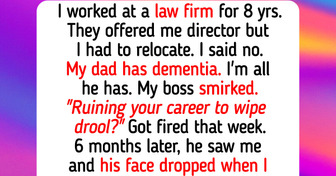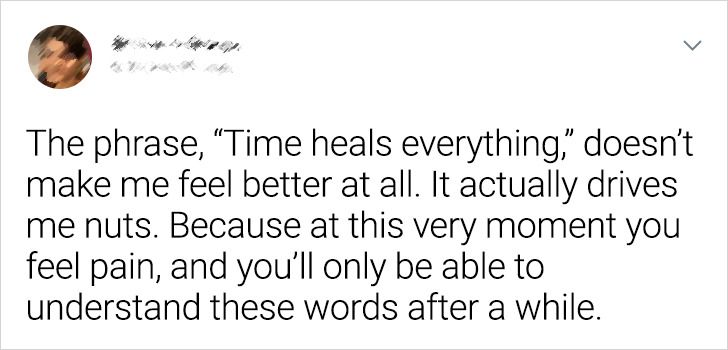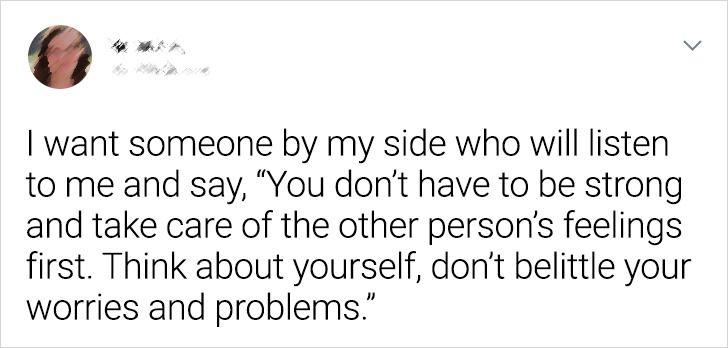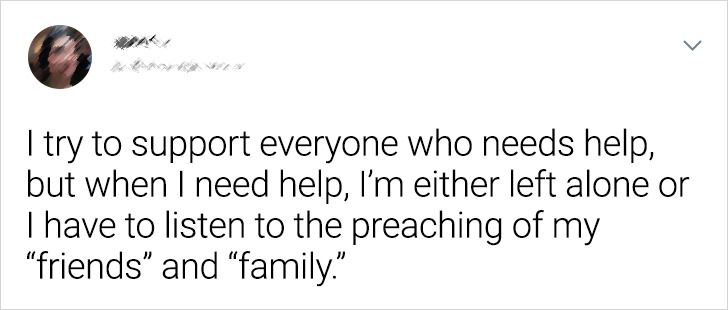There is another one.. "you'll get over it in time.." No you damn well won't. I NEVER say that to people. When a colleague lost his Mum, he said sadly "I suppose I'll get over it.." I said "No you will never get over the loss of your Mum, but, you will be able to cope with your loss better in time" I say it, because I have lost many loved ones, and you damn well don't get over it. Because I am known as quite a strong minded independent person, I get annoyed when people say "you're strong, you'll cope"
16 Seemingly Harmless Phrases That Are Actually Toxic
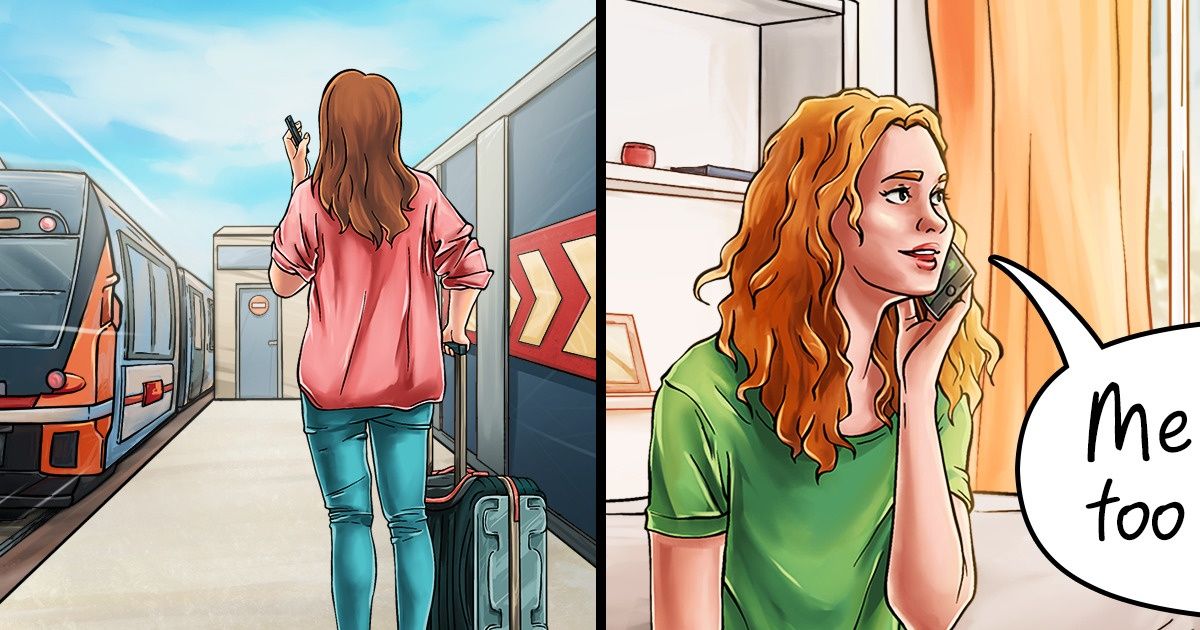
When we feel sad, we need our loved ones’ support. But sometimes words of support only aggravate negative feelings. Toxic positivity encourages us to ignore emotions, devalue problems, and impose unreasonable optimism. Some phrases may seem positive, but in fact, they only provoke negative emotions.
At Bright Side, we did our best to figure out which phrases can become an acceptable replacement for toxic comments.
“You’re in trouble.”
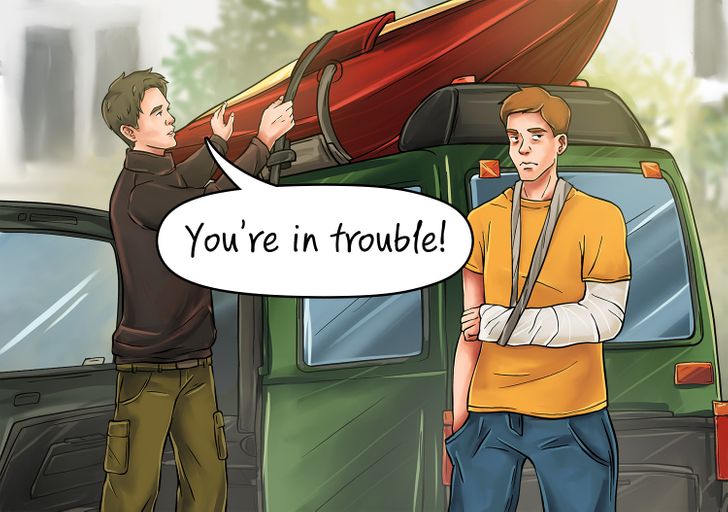
This phrase just emphasizes how unpleasant a situation is and doesn’t give any sense of hope on how fast you can get out of trouble. Next time you’ll think twice whether it’s worth sharing your problems with this person.
- A better way to say this would be, “I see that you feel bad. You can call me any time, I will always be happy to listen to you.”
“You’re strong, you’ll deal with it.”
Usually, you hear something like this when you don’t feel strong at all. This phrase is supposed to motivate you and give you strength but, according to psychologists, it’s useless and only reminds a person that they feel helpless.
- A better way to say this would be, “I can’t imagine how hard this is for you. How can I help you?”
“I’ve been there too.”
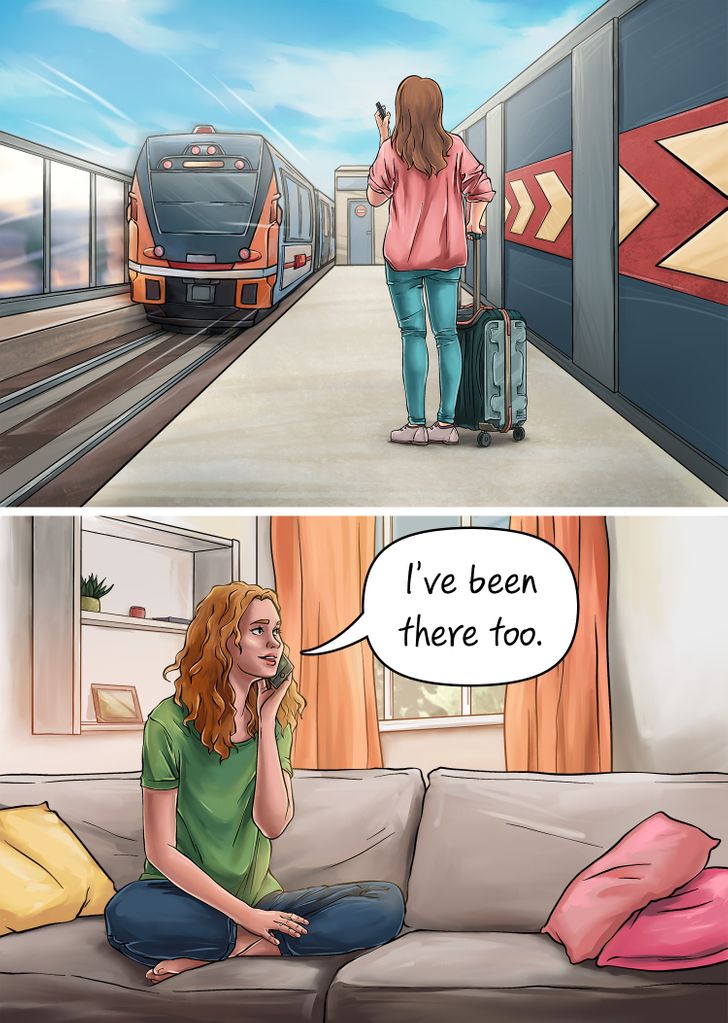
When someone is grieving, others may think they know how this person feels, but they don’t. Everyone has their own unique story and situation. Someone else’s experience doesn’t help you go through hard times.
- A better way to say this would be, “I experienced a similar situation a while ago, but I managed to return to a normal life. Your case is unique, but I will be happy to share my experience with you if you think it can help you.”
“Time heals everything.”
This phrase irritates those who have experienced intense grief. Eventually, people get used to their problem or solve it, but time doesn’t help them much. In the face of grief, many people look for ways to fix their problem, but there are things that can’t be fixed. Each situation is unique, no one can say for sure how long your feeling of grief will last.
- A better way to say this would be, “I wish this would’ve happened differently.”
“It’s not the worst thing in the world.”

The fact that your situation is better than that of the starving children in Africa won’t make you happier. And it won’t relieve your pain. Some people tend to want to simplify your problem (often unintentionally) by saying trivial things, and making you feel guilty about your negative emotions, which according to the person who tries to comfort you, are caused by insignificant reasons.
- A better way to say this would be, “Can I do something to make your situation easier?” Suggest something specific, like going to the supermarket or picking up the kids from school.
“It could be worse.”
The fact that your situation could be worse doesn’t really help you. Yes, it could’ve happened this way, but mentioning it devalues your feelings.
- A better way to say this would be, “I’ll be by your side if you need me.”
“I never really liked him.”
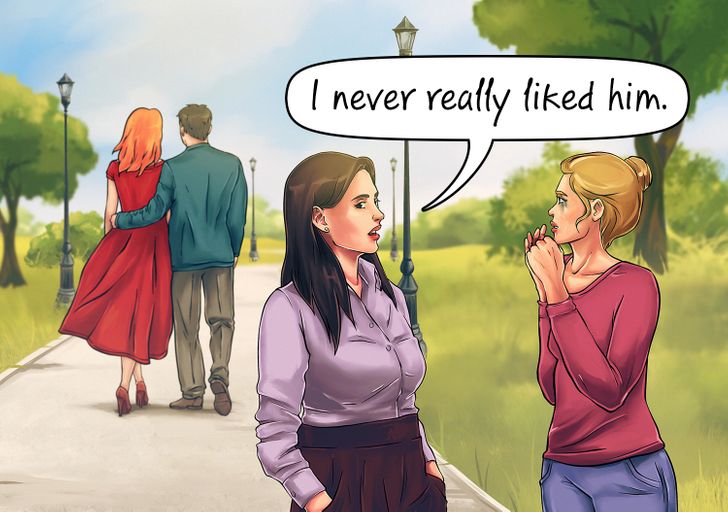
This phrase won’t help solve the situation and will make the other person wonder why you didn’t tell them this earlier. Judging the man your friend has strong feelings for will hurt her even more.
- A better way to say this would be, “You deserve a person who will appreciate you, and you’ll definitely find them.”
“I only want what’s best for you.”
This phrase is usually followed by the unwelcomed invasion into your personal space and a piece of advice you never asked for. Toxic people are usually pretty persistent, while timid and shy people don’t have enough strength to stop communicating with them.
- A better way to say this would be, “I don’t know what you feel right now. I’ve never been in this situation, so it’s hard for me to understand what you’re going through. But I want to understand you better, let’s have coffee and talk.”
“I told you so.”
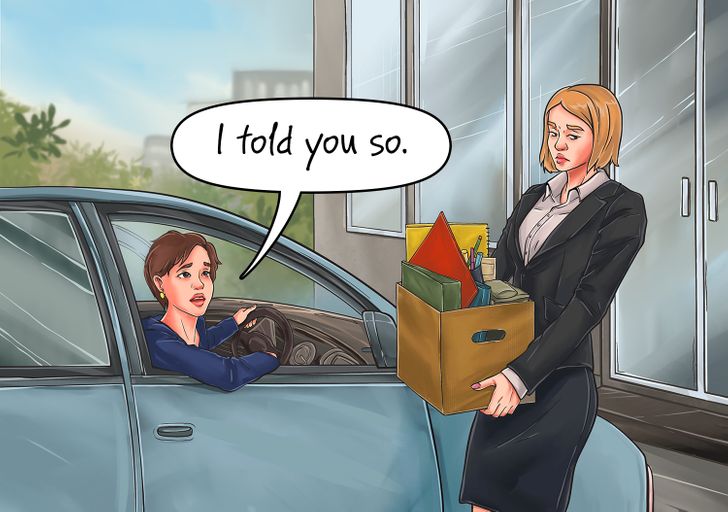
When a person gets into trouble, they already feel bad. This phrase only makes them feel worse — it causes resentment and aggression. People who think they are always right will never miss an opportunity to attract attention to the mistakes of others. The phrase can be perceived as, “I don’t want to know the details, it’s all your fault.”
- A better way to say this would be, “I’m worried about you.”
“You have to be strong.”
In reality, this person just likes to see your negative reaction and only cares about themselves, not you. This phrase reveals an egoist. Psychologists claim that this saying affects your self-esteem and ruins your relationships. You don’t have to act decisively and hide your insecurities and fears.
- A better way to say this would be, “I’m so sorry that you’ve encountered this problem.”
“I’d love to help but...”
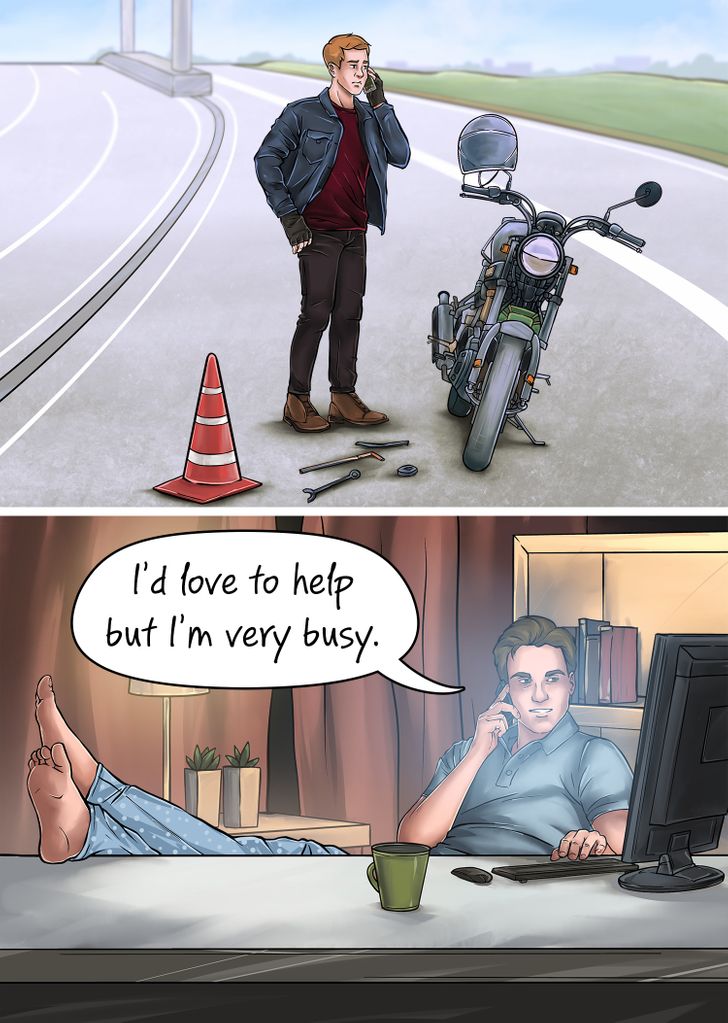
This person just can’t just tell you no directly, that’s why they always find an excuse for not helping you. While other people make promises that they simply can’t keep.
- A better way to say this would be, “I’m sorry I can’t help you right now.”
“If I were you...”
Something that was done, can’t be undone. Another person hasn’t been in your shoes and can’t know exactly how they would have acted instead. This comment sounds like self-affirmation at the expense of another.
- A better way to say this would be, “It’s not your fault, it could’ve happened to anyone.”
“There’s a reason for that.”
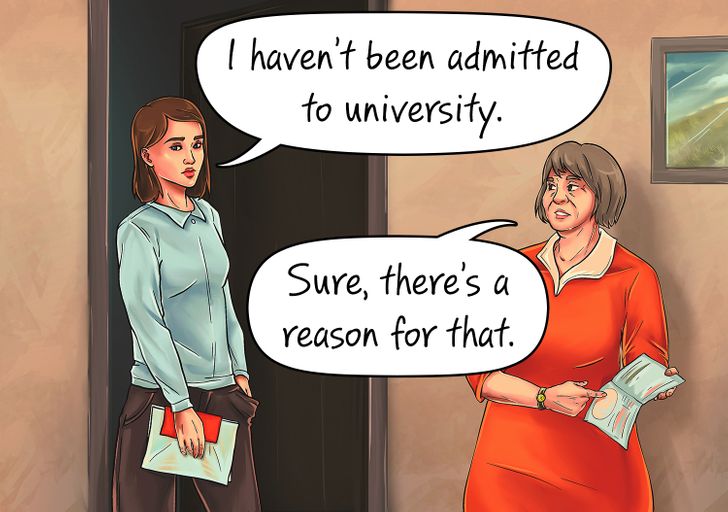
This phrase can be followed with attempts to find someone to blame or stories about karma and boomerang. A person who says these words believes that there is always a reason for everything, even if the situation is accidental.
- A better way to say this would be, “I wish I could say something that will take away your pain, but I don’t think I can. But I am always here to listen to you.”
“You might not want to listen to me, but I’m going to say this anyway.”
The person you’re talking to doesn’t give you any choice, violates your boundaries, and blames your negative reaction on you. They want to show that they are right and that it’s your fault that you listen to them and experience unpleasant emotions.
- A better way to say this would be, “I am with you.”
“It’s nothing! Don’t worry about it!”

This phrase devalues your feelings and everything that is important to you. This attempt to support you is heartless and useless. You will feel that your experience and feelings are being neglected. In other words, your feelings are not important, interesting, or essential.
- A better way to say this would be, “When I felt bad, you helped and supported me. Now it’s my turn to support you.”
“The things that don’t kill you make you stronger.”
Usually, at this moment we feel powerless, and these phrases don’t help raise our spirit. After these words, a person may experience even greater anxiety and doubts in their own abilities. Psychologists say that about 70% of people experience severe psychological trauma in their lifetime. If negative events could really make us stronger, we would all be superhuman.
- A better way to say this would be, “What happened to you is awful.”
How do your friends and family support you when you feel bad? Tell us in the comments below.
Comments
Related Reads
I Refused to Let a 5 Y.O. Attend My Daughter’s Party—Now They Say I’m Cruel
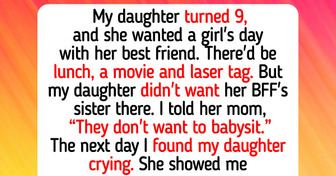
14 People Who Just Went With the Flow and Ended Up With a Story Worth Telling

I Absolutely Refuse to Give Up My Apartment for My Sister and Her 3 Kids
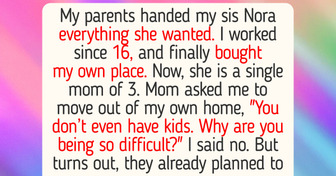
I Refuse to Be Held Responsible for the Parents Who Abandoned Me
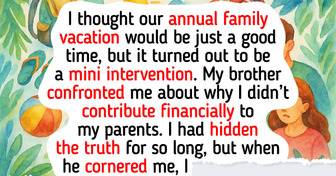
I Quit After My Boss Punished Me for Attending My Mom’s Surgery
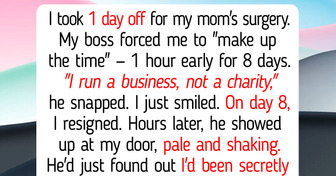
I Refuse to Help My Parents Who Abandoned Me at 18
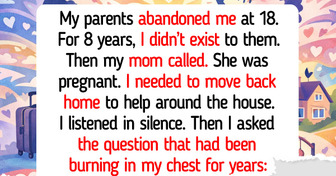
My MIL Demanded Rent for a House That Isn’t Hers, I Turned the Tables

I Refused to Be the Fall Guy After My Boss Called Me "Useless"—I Had Him Reassigned and Took His Clients
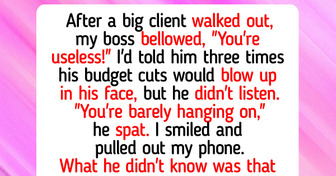
I Refuse to Earn Pennies While My Manager Cashes a Fortune
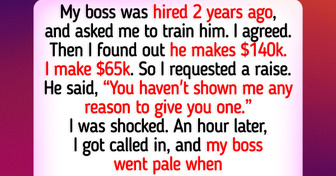
HR Fired Me Right Before My Vacation, So I Used It Against Them
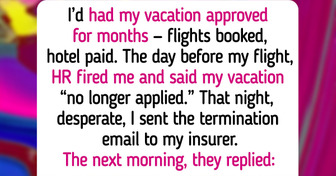
16 Stories That Prove a Dad’s Love Is the Most Powerful Magic in the World
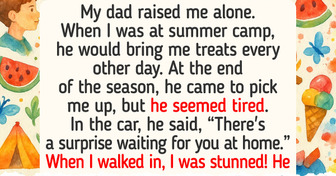
I Turned Down a Promotion and Got Fired—My Revenge Was Brutal
